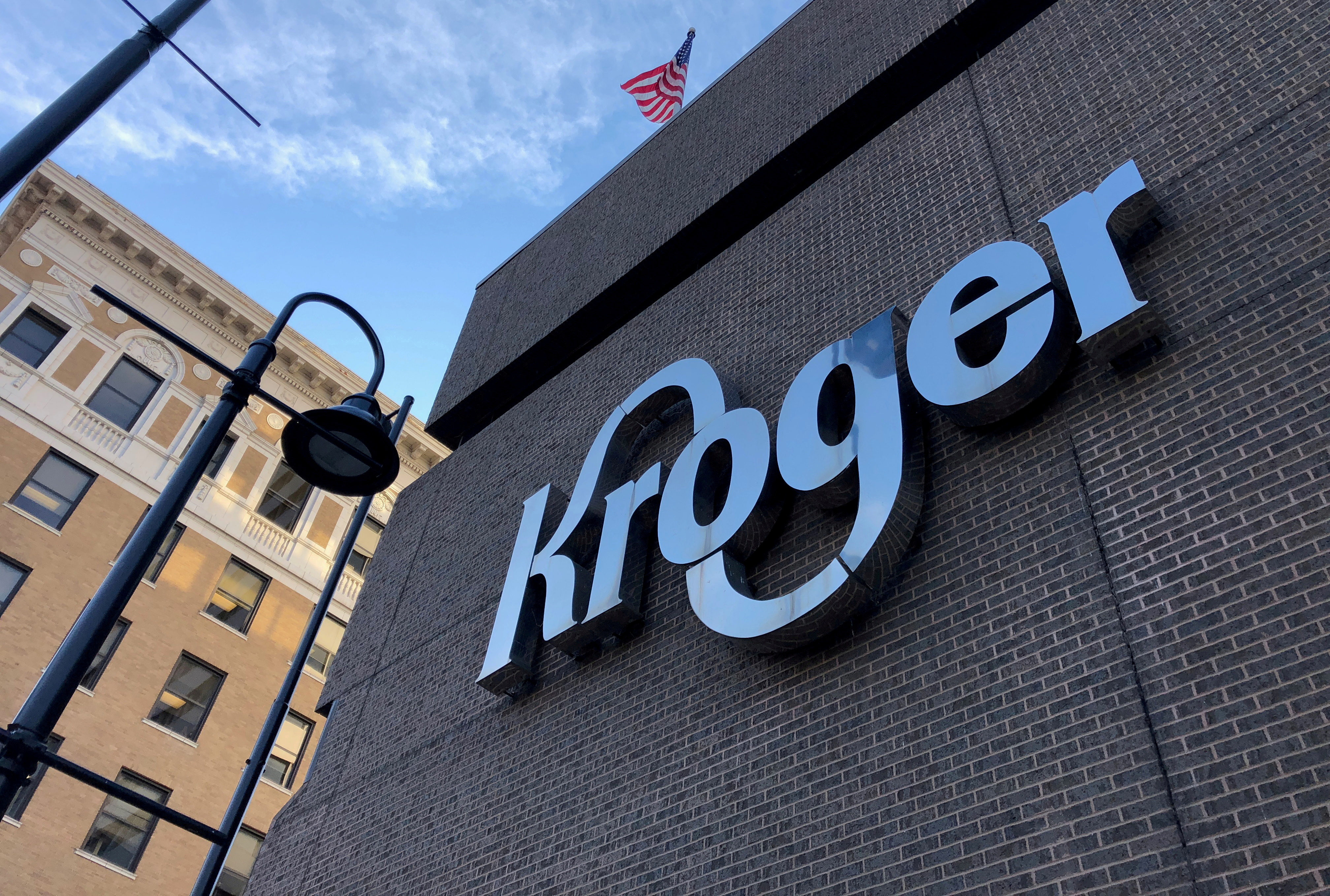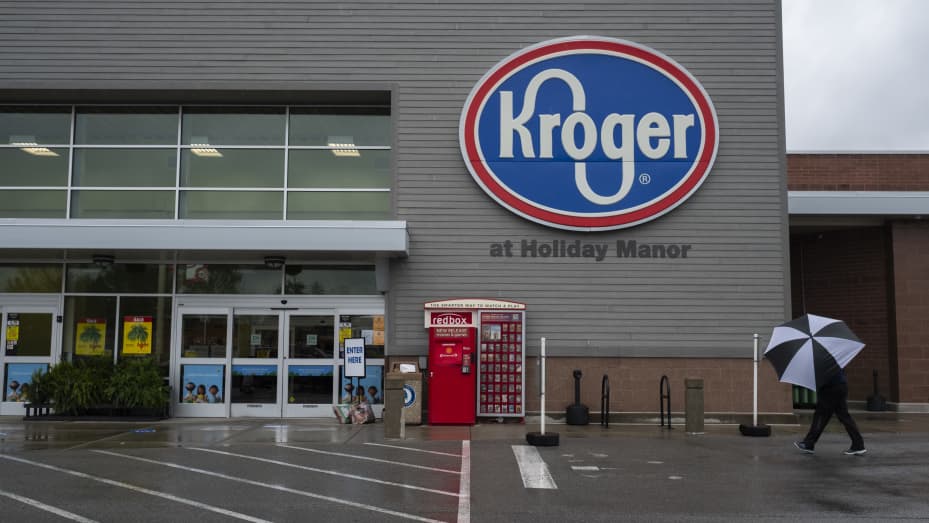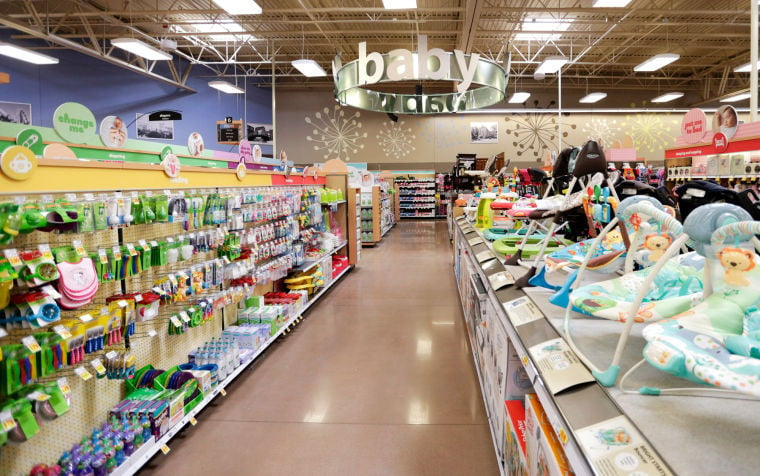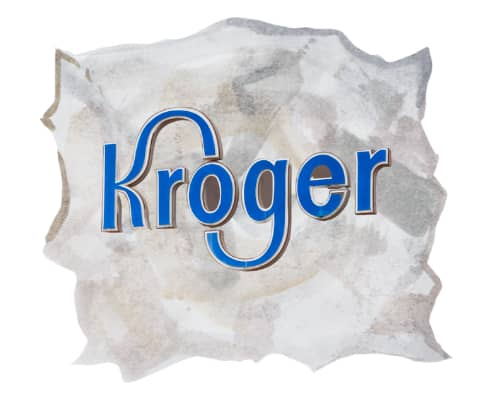Why is Kroger closing? What companies are owned by Kroger? Is Kroger a US company? Everything there is to know about Kroger is covered. We use a company’s products regularly but have no idea where they came from, just as few people are aware of Kroger’s origins. It’s easy to see why, and in this case, customers are learning about both the product and the company’s history.
The Kroger Company, or simply Kroger, is an American retail company that operates supermarkets and multi-department stores throughout the United States.
Why is Kroger closing?
Kroger, the largest supermarket chain in the United States, is closing stores and laying off scores of employees in response to local hazard pay rules for essential workers, even as the coronavirus pandemic continues to rage.
The closures come after the city of Los Angeles voted to require grocery stores to pay an extra $5 per hour for the next four months. Kroger chose to close the three stores instead, claiming that they were already struggling. The company will continue to operate 65 additional locations in Los Angeles.
What Companies Are Owned By Kroger?| What other names does Kroger go under?
The Kroger Co. Family of Stores consists of the following:
⦿Baker’s
⦿City Market
⦿Dillons
⦿Food 4 Less
⦿Foods Co
⦿Fred Meyer
⦿Fry’s
⦿Gerbes
⦿Jay C Food Store
⦿King Soopers
⦿Kroger
⦿Mariano’s
⦿Metro Market
⦿Pay-Less Super Markets
⦿Pick Save
⦿QFC
⦿Ralphs
⦿Ruler
⦿Smith’s Food and Drug
Is Kroger a US company?
Yes, Kroger is a US company
The Kroger Company, or simply Kroger, is an American retailer that operates supermarkets and multi-department stores across the country.
What Does The Kroger Company Do?
The Kroger Company owns and runs the following grocery retail chains: Kroger, Ralphs, Dillons, Smith’s, King Soopers, Fry’s, QFC, City Market, Owen’s, Jay C, Pay Less, Baker’s, Gerbes, Harris Teeter, Pick ‘n Save, Metro Market, Mariano’s are just a few of the supermarkets. Fred Meyer is a chain of multi-department stores.
Is Kroger a global company?
It currently operates a variety of retail establishments, ranging from supermarkets to convenience stores, across 34 states in the United States. Kroger has over 2,900 stores in the United States but has yet to expand internationally. Despite this, Kroger is the world’s second-largest hypermarket chain.
Who is the parent company of Kroger?
The parent company of Kroger is The Kroger Co.
The Kroger Company operates grocery stores under the following brand names: Kroger, Ralphs, Dillons, Smith’s, King Soopers, Fry’s, QFC, City Market, Owen’s, Jay C, Pay Less, Baker’s, Gerbes, Harris Teeter, Pick ‘n Save, Metro Market, Mariano’s are all supermarkets. Fred Meyer operates multi-department stores.
How many Krogers are in the US?
Kroger owns 3,242 stores in the United States (as of February 2021), making them the second-largest retailer after Walmart.
What states does Kroger operate in?
Kroger or its local affiliate store chain was named the favorite grocery store by shoppers in Alaska, Colorado, Indiana, Kentucky, Mississippi, Nevada, Ohio, Oregon, Tennessee, Utah, Virginia, Washington, and West Virginia. That accounts for more than one-third of Kroger’s 35 states of operation.
Is Kroger a privately owned business?
Yes, Kroger is the largest supermarket chain in the United States by revenue, the second-largest general retailer behind Walmart, and the seventh-largest American-owned private employer in the United States.
Who makes Kroger brand products?
Kroger outsources manufacturing for 60 percent of its private brands, including all non-food private brands. Ontario, California is one of Kroger’s suppliers.
Where are Kroger stores in the US?
⦿Alabama
⦿Alaska
⦿Arizona
⦿Arkansas
⦿California
⦿Colorado
⦿Delaware
⦿Florida
⦿Georgia
⦿Idaho
⦿Illinois
⦿Indiana
⦿Kansas
⦿Kentucky
⦿Louisiana
⦿Maryland
⦿Michigan
⦿Mississippi
⦿Missouri
⦿Montana
⦿Nebraska
⦿Nevada
⦿New Mexico
⦿North Carolina
⦿Ohio
⦿Oregon
⦿South Carolina
⦿Tennessee
⦿Texas
⦿Utah
⦿Virginia
⦿Washington
⦿West Virginia
⦿Wisconsin
⦿Wyoming
Are Kroger and Walmart the same company?
No, Although they both sell groceries, Kroger and Walmart are classified as “supermarkets.” They aren’t the same companies While the terms grocery store and supermarket are frequently used interchangeably, grocery stores are typically more focused on a specific food category or demographic.
Who owns Kroger companies?
The Vanguard Group, Inc. owns Kroger companies
Vanguard is the world’s largest mutual fund issuer and the world’s second-largest exchange-traded fund issuer (ETFs). 5 As of 2021, it had 209 US dollars. 6 As of 2021, it has one of the world’s largest bond funds, the Vanguard Total Bond Market Index.
Who is the CEO of Kroger?
Rodney McMullen is the CEO of Kroger
William Rodney McMullen is a businessman from the United States who has been the CEO of Kroger, the country’s second-largest general retailer, since January 1, 2014.
When did Kroger found?
Kroger was founded In 1883, in Cincinnati, Ohio, United States
In 1883, Barney Kroger used his life savings of $372 to open a single grocery store on Pearl Street in downtown Cincinnati at 66 Pearl Street. The Story Began
Where did Kroger get its name?
Kroger is much older than most people realize. Bernard Henry Kroger, the company’s founder, was the son of German immigrants. John Henry Kroger, his father, was a merchant who ran a dry goods store in Cincinnati. Despite seeing his father’s business fail, Kroger was inspired to start his own in 1883.
Where is the headquarters of Kroger?
The headquarters of Kroger is in Cincinnati, Ohio, United States
Is Kroger cheaper than Walmart?
In general, yes. Walmart and Kroger have been engaged in a price war for quite some time. According to Business Insider, Walmart’s groceries are approximately 4% less expensive than Kroger’s.
Is Kroger owned by Meijer?
No. Meijer is not owned by Kroger. Meijer is one of the largest privately-held grocery chains in the United States. In comparison, Kroger is the largest grocery chain in the United States and, after Walmart, the second-largest retailer.
What states have no Kroger?
Guam, New Jersey, Wisconsin, New York, Kansas, Maine, Rhode Island, California, New Mexico, Montana, Delaware, US Virgin Islands, Northern Mariana Islands, Pennsylvania, North Dakota, Connecticut, Minnesota, Idaho, New Hampshire, Puerto Rico, Hawaii, Alaska, Massachusetts, South Dakota, Nevada, Vermont, Nebraska, Utah, North Carolina, Iowa, Colorado, Oklahoma, District of Columbia, Maryland, Wyoming
What is Kroger called in California?
Kroger called Ralphs in California
Ralphs is a Southern California-based American supermarket chain. It is the oldest such chain west of the Mississippi River and the largest subsidiary of Cincinnati-based Kroger.
Is Kroger a good brand?
According to Demer, while Kroger store brands may not compete with those offered by industry leaders such as Trader Joe’s or Costco, they are a good choice and offer good value to shoppers.
Who bought Kroger?
EG Group bought Kroger
EG Group entered the US market in April 2018 when it paid $2.15 billion for Kroger’s 762 convenience stores.
Berkshire Hathaway began purchasing Kroger stock in early 2020 and became a top ten stakeholder by August 2021. A third-party attack was believed to have hacked the corporation in 2021, compromising the medication records of Kroger-owned Fred Meyer and QFC shop clients.
Is there a Kroger in all 50 states?
There are 38 US states and territories that do not have a Kroger store.
Is Publix owned by Kroger?
And, despite accounting for one-third of Kroger’s sales, Publix made $2.6 billion in the first nine months of 2021, more than Kroger’s $2.1 billion. Have you considered purchasing some Publix stock? You won’t be able to unless you work there. Employees, board members, and the original Jenkins family own Publix.
What is Kroger called in Texas?
West Virginia, Ohio, Virginia, Kentucky, Indiana, Illinois, Michigan, Tennessee, South Carolina, North Carolina, Georgia, Louisiana, Mississippi, Texas, Arkansas Alabama – Kroger Food and Drug, also known as Kroger Fresh Fare, Kroger Marketplace, and Kroger Signature.
Is Kroger coming back to San Antonio?
Kroger, America’s largest supermarket chain, is expanding and coming to San Antonio. The statement was made at the company’s 2022 Business Update in Orlando, Florida.
Is Kroger still in business?
Yes, Kroger is one of the world’s largest retailers, with approximately 2,800 locations in 35 states operating under two dozen labels with annual sales of more than $132.5 billion.
How many Krogers are there in the US?
As of January 2022, the American supermarket chain Kroger had 2,726 outlets, with the majority of them also housing pharmacies. Kroger is a major supermarket retailer in the United States. The Kroger Company has the most stores of any supermarket chain in the United States.
Who is Kroger affiliated with?
The Kroger Company operates grocery stores under the following brand names: Kroger, Ralphs, Dillons, Smith’s, King Soopers, Fry’s, QFC, City Market, Owen’s, Jay C, Pay Less, Baker’s, Gerbes, Harris Teeter, Pick ‘n Save, Metro Market, Mariano’s are examples of supermarkets. Fred Meyer is a multi-department retailer.
Is Kroger owned by Walmart?
No, even though both Kroger and Walmart sell groceries, they are designated as “supermarkets.” They are not the same businesses. While the phrases supermarket and grocery shop are commonly used interchangeably, grocery stores are typically more focused on a specific food category or population.
How many states in America do Kroger exist?
Kroger has 2900 outlets in 35 states in America because the company wants to reach a huge number of customers. This will allow Kroger to sell more consumer goods and create revenue.
Is Kroger an International company?
Kroger is not an international corporation, but you can order from them via www.kroger.com. To order from Kroger, you will need a package forwarder, which is a warehouse in the United States that will take your Kroger package and ship it to you. Kroger is able to do so due to strong collaborations.
How fast does Kroger deliver?
Kroger has a virtual convenience store that can deliver food and staples to customers’ homes in 30 minutes. Kroger Delivery Now is the name of the convenience shop. Customers will be charged a 15% service fee and a $2.99 shipping cost.
Is Kroger A Franchise?
Kroger is not a franchise because it has centralized authority and influence over all of its stores in the many places where it operates. It also specifies how the stores should be run. This is done to ensure that consumers in various locations receive the same level of service. This approach allows Kroger to oversee all of its stores’ expenses, and all of its revenues are likewise owned by the company.
What Time Does Kroger Open?| What Time Does Kroger Close?
Here are a few examples of Kroger business hours:
- Carbondale, IL: Grocery store hours are from 6 a.m. to 1 a.m., and gas station hours are from 6 a.m. to 11 p.m.
- Nashville, TN: Grocery store hours are from 6 a.m. to 11 p.m., and gas station hours are from 6 a.m. to 9 p.m.
- Denver, CO: Grocery store hours are 24 hours, and gas station hours are 24/7 pay-at-the-pump; the station is open until 10 p.m.
- Blacksburg, VA: Grocery store hours are 24 hours, and gas station hours are 24/7 pay-at-the-pump; the station is open until 10 p.m.
Chart of Kroger Business Hours
| Monday-Friday | Saturday | Sunday | |
| Kroger Main Store | 6:00am – 10:00pm | 6:00am – 10:00pm | 6:00am – 10:00pm |
| Kroger Customer Service | 7:00am – 12:00am | 7:00am – 9:30pm | 7:00am – 9:30pm |
| Kroger Pharmacy | 8:00am – 8:00pm | 9:00am – 7:00pm | 11:00am – 6:00pm |
| Kroger Fuel Center | 6:00am – 10:00pm | 6:00am – 10:00pm | 6:00am – 10:00pm |
| Kroger Deli & Bakery | 6:00am – 10:00pm | 6:00am – 10:00pm | 6:00am – 10:00pm |
| Kroger Floral | 9:00am – 5:00pm | 9:00am – 1:00pm | CLOSED |
| Industry | Retail |
|---|---|
| Founded | 1883; 139 years ago Cincinnati, Ohio, U.S. |
| Founder | Bernard Kroger |
| Headquarters | Cincinnati, Ohio, U.S. |
| Number of locations | 2,868, including 2,726 supermarkets and 142 jewelers(Q3 2021) |
| Area served | United States |
| Key people | Rodney McMullen (CEO & Chairman) Gary Millerchip (CFO) Yael Cosset (CIO) Stuart Aitken (CMO) |
| Products | Supercenter/superstore, Another specialty, supermarket |
| Website | www.thekrogerco.com www.kroger.com |
The History of Kroger

Bernard Kroger, the fifth of ten children of German immigrants, was 23 years old when he invested his life savings of $372 to open a grocery store at 66 Pearl Street in downtown Cincinnati in 1883. He ran his business, the son of a merchant, with a simple motto: “Be specific. Never sell anything that you would not want to buy for yourself.” He experimented with marketing products made by his company so that his customers wouldn’t have to visit multiple stores and farms.
Kroger opened his second store in 1884. The Kroger Grocery and Baking Company was formed in 1902. By this point, the company had expanded to forty stores and was selling $1.75 million in merchandise each year. Furthermore, Kroger was the first grocery chain to have its bakery.
Kroger introduced self-service shopping in 1916. Previously, all articles were kept behind counters, and customers would ask for them, which clerks would then deliver to them.
Safeway and Kroger were rumored to merge in 1929.
Kroger was the first grocery chain to monitor product quality and test foods offered to customers in the 1930s, as well as the first to have a store surrounded on all four sides by parking lots.
Kroger began acquiring supermarket chains in 1955, expanding into new markets. Kroger entered the Houston, Texas, market in May when it acquired the 26-store Henke & Pillot chain. Kroger purchased Appleton, Wisconsin-based Krambo Food Stores, Inc. in June. It bought Child’s Food Stores, Inc. of Jacksonville, Texas, in late July.
In January 1956, the company purchased Big Chain Stores, Inc., a seven-store chain based in Shreveport, Louisiana, and later merged it with the Child’s group. In 1966, all of these companies adopted the Kroger brand.
During the acquisitions, Kroger sold its Wichita, Kansas, store division, which at the time consisted of 16 stores, to J. S. Dillon and Sons Stores Company, which was then led by Ray S. Dillon, son of the company’s founder.
Kroger purchased the 56-store chain Market Basket in October 1963, giving them a foothold in the lucrative Southern California market. (Before this time, there were no Kroger stores west of Kansas.)
Kroger opened stores in Florida under the SupeRx and Florida Choice banners from the 1960s until 1988, when the company decided to leave the state and sell all of its stores; Kash n’ Karry purchased the majority of the shares.

Kroger was the first grocer in the United States to test an electronic scanner and the first to formalize consumer research in the 1970s.
Although Kroger has long operated stores in northern Alabama’s Huntsville-Decatur area (as a southern extension of its Nashville, Tennessee, region), it has not operated in the state’s largest market, Birmingham, since the early 1970s, when it exited due to intense competition from Winn-Dixie and local chains Bruno’s Supermarkets and Western Supermarkets.
In 1972, Kroger built an ultra-modern dairy plant (Crossroad Farms Dairy) in Indianapolis, which was considered the largest dairy plant in the world at the time.
In 1970, Kroger exited the Chicago market by selling its distribution warehouse in Northlake, Illinois, as well as 24 stores to the Dominick’s Finer Foods grocery chain.
In 1972, Kroger left Milwaukee, selling a few stores to Jewel. Kroger would later return in 2015 after acquiring Roundy’s.
Kroger entered the Charlotte market in 1977 and expanded rapidly throughout the 1980s after purchasing some BI-LO stores. However, the majority of the stores were in less desirable neighborhoods and did not correspond to Kroger’s upscale image. Less than three months after BI-LO announced its exit, the company decided to re-enter the Charlotte market, and Kroger announced its exit from the Charlotte market and put its stores up for sale in 1988. Ahold purchased the remaining Kroger stores in the Charlotte area and converted them to BI-LO.
From 1928 to 1984, when the United States began experiencing a severe economic recession, Kroger had several stores in the Western Pennsylvania region, which included Pittsburgh and surrounding areas. The recession had two significant and interconnected effects on Kroger’s regional operations. One of them was that the region’s highly cyclical manufacturing-based economy declined faster than the rest of the country, undermining demand for Kroger’s higher-end products and services. The second effect of the economic downturn was a deterioration in labor-management relations, which resulted in a lengthy labor strike in 1983 and 1984.
During the strike, Kroger pulled all of its stores from the Western Pennsylvania market, including some newly opened “supermarkets” and “greenhouses,” selling them to Wetterau, who promptly flipped the stores to independent owners while continuing to supply them under the Foodland and Shop ‘n Save brands. With Kroger’s exit, the market was handed over to lower-cost, locally-owned competitors, most notably Giant Eagle and the SuperValu-supplied grocers.
Kroger still has a presence in nearby Morgantown, West Virginia, Wheeling, West Virginia, and Weirton, West Virginia/Steubenville, Ohio, where Giant Eagle has a much smaller presence and SuperValu-supplied stores are virtually nonexistent, though Walmart remains a major competitor in all of these cases and Aldi is the only other supermarket with any market overlap.
Kroger entered the competitive San Antonio, Texas, market in 1980 but withdrew by mid-1993. The company announced the closure of its 15 area stores on June 15, 1993.
In 1981, the chain closed several stores in and around Flint, Michigan, which were converted to a new chain called Kessel Food Markets by local businessman Al Kessel. Kroger purchased the majority of these stores in 1999 and began reverting them. In 1980, Hamady Brothers, another Flint-based chain, purchased several other Michigan stores. The Hamady acquisition was brief.
Kroger sold the 65-store Market Basket chain it had operated in southern California for several years in 1982. After acquiring the chain, the stores were rebranded as Boys Markets. In 1989, the Yucaipa Companies purchased Boys Markets. When Yucaipa purchased Ralphs, the Boys brand vanished.
The Kroger Company purchased the Dillon Companies grocery chain in Kansas, as well as its subsidiaries (King Soopers, City Market, Fry’s, and Gerbes) and the convenience store chain Kwik Shop, in 1983. Kroger’s CEO is David Dillon, a fourth-generation descendant of J. S. Dillon, the founder of Dillon Companies.
Kroger had a plant in Solon, Ohio until the mid-1980s in northeastern Ohio. When that plant closed, Kroger closed its stores in Cleveland, Akron, and Youngstown in northeastern Ohio. Acme Fresh Markets, Giant Eagle, and Heinens have taken over some of the former Kroger locations.
Kroger opened and operated approximately 50 stores in St. Louis before exiting the market in 1986, claiming that its stores were unprofitable. The majority of its stores were purchased by National, Schnucks, and Shop ‘n Save. The majority of the remaining Kroger stores in eastern Missouri and west-central Illinois was absorbed into the Central Division (headquartered in Indianapolis).
Kroger made a similar decision to leave Chattanooga, Tennessee, in 1989. Many of these locations were sold to the local grocery chain Red Food, which was later purchased by BI-LO in 1994. Today, Chattanooga is Tennessee’s only metropolitan market where Kroger does not operate, with the nearest location being Dalton, Georgia, which has two stores (Walnut Avenue and Cleveland Highway).

Kroger acquired Great Scott (Detroit), Pay Less Food Markets, Owen’s Market, JayC Food Stores, and Hilander Foods in the 1990s. In addition, in early 1994, Kroger purchased several stores from AppleTree Markets, which were former Safeway stores, strengthening the Houston market.
Kroger merged with Fred Meyer, the fifth-largest grocery company at the time, and its subsidiaries, Ralphs, QFC, and Smith’s, in 1998.
It acquired many stores from A&P as it exited many Southern markets in the late 1990s.
In 1999, Kroger traded all ten of its Greensboro, North Carolina-area stores to Matthews, North Carolina-based Harris Teeter in exchange for 11 of that company’s stores in central and western Virginia.
Kroger, long the dominant grocer in western Virginia, entered the Richmond, Virginia, market in 2000, competing with market leaders Martin’s (including former Ukrop’s stores) and Food Lion. Kroger entered the market by acquiring Hannaford stores in Richmond that were either already open or under construction. Hannaford also acquired a stake in the competitive Hampton Roads market, where it now competes with Farm Fresh, Harris Teeter, and Food Lion.
Kroger purchased the Hannaford locations in these markets from Delhaize as a condition of Delhaize’s 2000 acquisition of the Hannaford chain, which had previously competed against Food Lion, which was also owned by Delhaize. Walmart Supercenters are also major competitors in both markets, and the chain briefly competed in Virginia against Winn-Dixie, which has since exited the state.
Baker’s Supermarkets was purchased by Kroger from Fleming Companies, Inc. in 2001.
In early 2002, Albertsons exited the San Antonio and Houston markets, selling many Houston stores to Kroger.
When Winn-Dixie left Cincinnati, Ohio, in 2004, Kroger purchased the majority of the old Thriftway stores. These locations were reopened as Kroger locations.
Kroger purchased Scott’s Food & Pharmacy from SuperValu Inc. in 2007, and the following year, Kroger purchased 20 former Michigan Farmer Jack locations from A&P when A&P exited the Michigan market.
Kroger formed a partnership with Murray’s Cheese of New York City in 2008. Murray’s Cheese counters in Kroger stores sell artisanal cheese from all over the world.
On July 9, 2013, Kroger announced its $2.5 billion acquisition of (the 212 stores of Charlotte-based) Harris Teeter, as well as the assumption of $100 million in the company’s outstanding debt. Kroger’s return to the Charlotte market after a 25-year absence was marked by the announcement. Some industry observers see this as a counter-competitive move against online grocers like AmazonFresh. In June 2015, Kroger removed the Harris Teeter brand from the Nashville, Tennessee market. Kroger and Roundy announced a definitive merger of their 166 primarily Wisconsin-based chains in November 2015.
The $800 million mergers, including debt, brought Kroger back to Wisconsin after a 43-year absence. Kroger announced in April 2016 that it had made a “significant investment” in Boulder, Colorado-based Lucky’s Market. Kroger opened its first convenience store, dubbed “Fresh Eats MKT,” on May 10, 2017. The new prototype stores will be approximately 12,000 square feet in size and will be very similar to the Walmart Neighborhood Market project in that they will only sell food. It was announced in February 2018 that it would sell its 762 convenience stores to EG Group, a British gas station operator, for $2.15 billion.
In May 2018, Kroger announced the acquisition of Home Chef for $200 million, with an additional $500 million in incentives if certain targets are met by Home Chef. Kroger Mid-Atlantic announced on June 13, 2018, that they will be leaving the Raleigh-Durham area by closing and selling all 14 of their stores. The company has been investing millions of dollars in automating many cashier stations by 2023.
Kroger’s earnings increased by 87.7 percent during the pandemic in 2020. Long Beach City Council passed an ordinance in 2021 requiring some large grocery stores to provide hazard pay of $4 per hour to their essential workers. Kroger announced the closure and permanent termination of the “entire operations” of some of its stores.
Kroger’s quarterly revenues were the US $29.72 billion as of November 20, 2020, and the corporation’s per-share earnings and dividends increased rapidly in 2020. A third-party hack was reported to have breached the company, compromising the pharmacy records of Kroger-owned Fred Meyer and QFC store customers. Kroger’s board of directors elected Elaine Chao, formerly Secretary of Labor under President George W. Bush and Secretary of Transportation under President Donald Trump, on August 2, 2021.
Conclusion
I hope you got an answer to all your questions about Why is Kroger closing? What companies are owned by Kroger? Is Kroger a US company?.
If you have anything to say please let us know in the comment section.
Also read,

